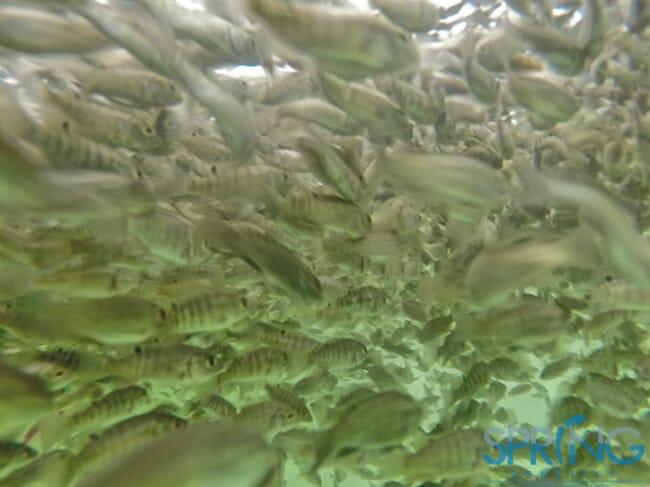Taking in place in San José, Costa Rica, two special guests have been confirmed for the opening plenary. The first is Dr Enric Gisbert Casas, a specialist in fish nutrition and physiology, who is responsible for the aquaculture programme of the Agrifood Research and Technology Institute (IRTA) in Spain.

© Spring Genetics
Dr Casa is the author of numerous scientific articles and has collaborated in research projects in Europe, America and Asia. He is coordinator of the Cyted LARVAplus Network (strategies for development and improvement of fish larvae production in Ibero-America).
The second is Dr Luís E C Conceição, an expert in fish nutrition and metabolism, who is head of R&D at Sparos, which is dedicated to innovation for the development of new products, technologies and processes for the feeding of fish.
LAQUA19 will also feature a Theoretical - Practical Course on Pathologies in Shrimp Cultivation from November 18 to 19 at the National University Omar Dengo Heredia campus. The topics to be discussed include diseases in farmed shrimp, diagnostic techniques, clinical signs of disease, practice in sampling and biosecurity strategies. The course will be led by Dr Luis Fernando Aranguren Caro, who has more than 20 years’ experience in the health of shrimp and marine fish, with a focus on diagnosis, health management and biosecurity.
The academic component of LACQUA19 has opened its call for the submission of works on various topics including: the most cultivated species in Central America and in countries of the LACC area, with special focus on tilapia, trout, native fish and shrimp; production systems; sustainable aquaculture; health and diseases; physiology and genetics; nutrition and food; processing; and economics and socioeconomics of aquaculture.
Oral presentations, posters and abstracts may be made in Spanish, Portuguese or English. The submission of abstracts is open until 1 September.

